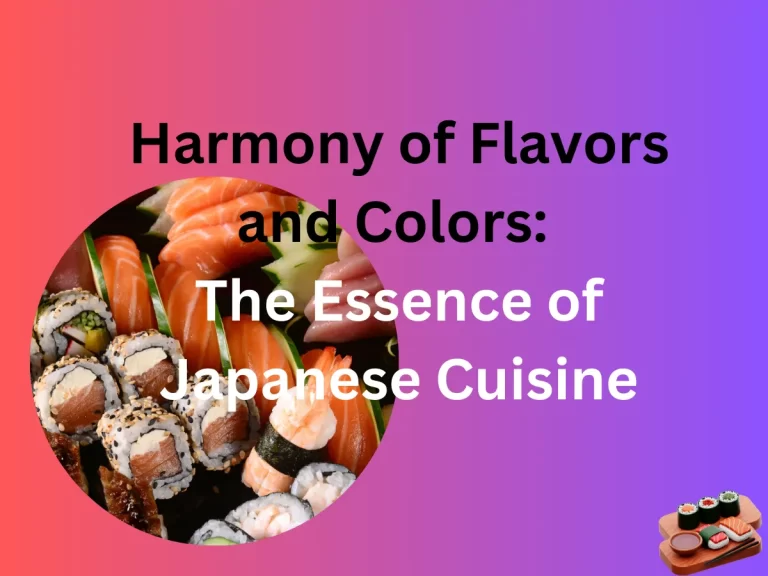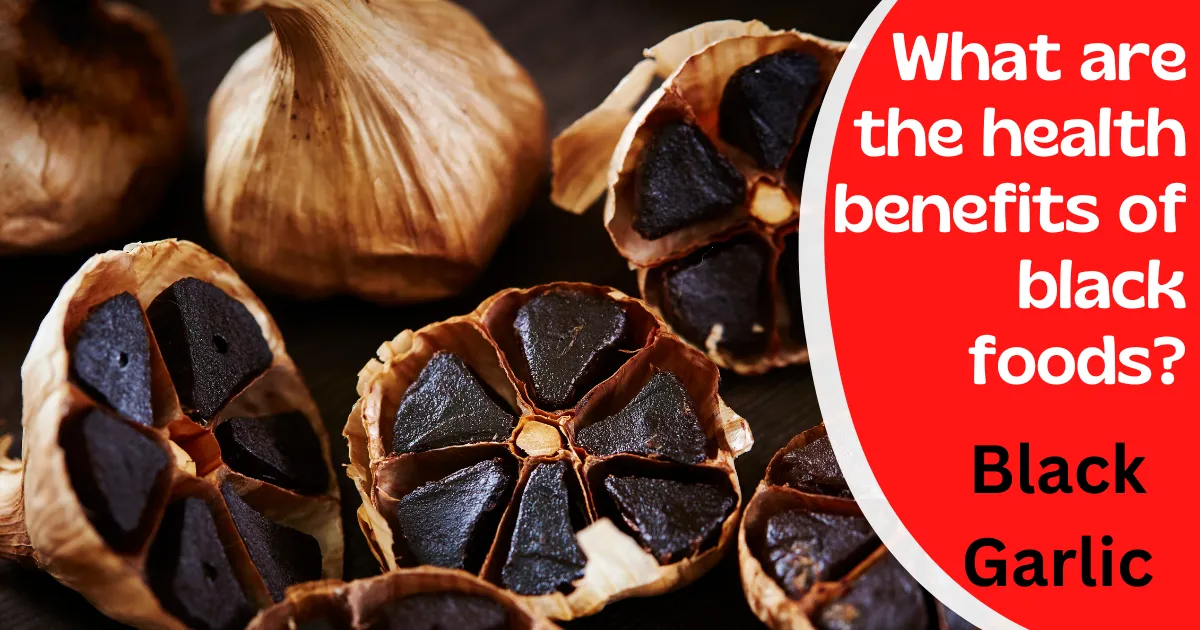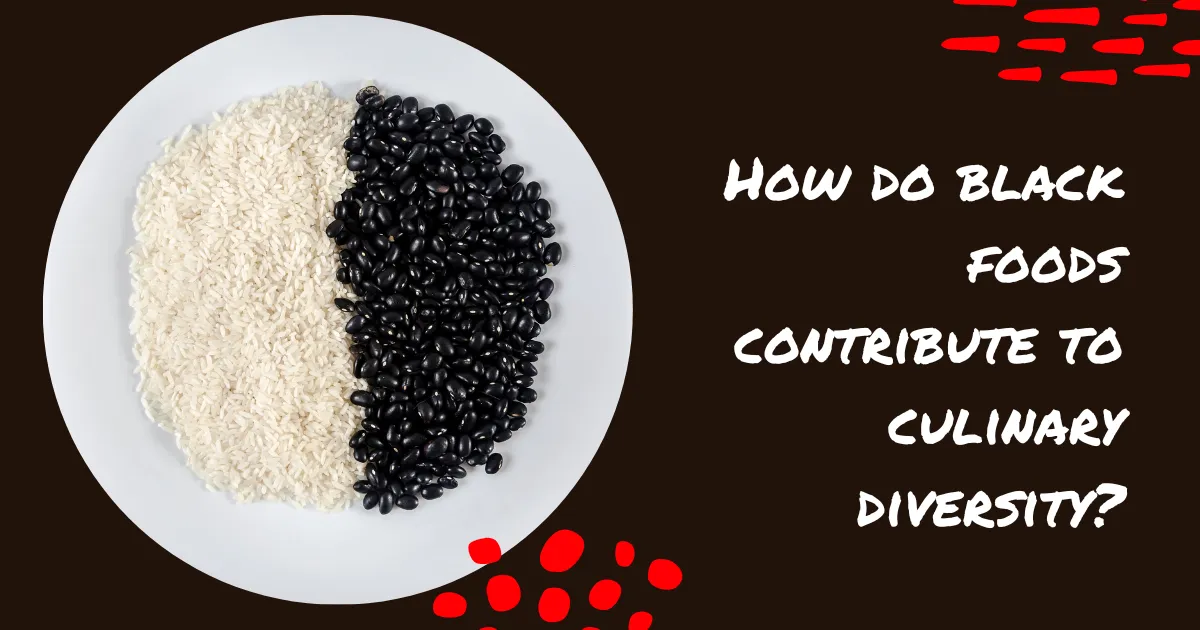Black foods have gained popularity for their unique appearance and potential health benefits. If you follow a vegan diet, you might wonder if black foods are suitable for you. In this article, we will explore the vegan-friendliness of black foods and guide you on incorporating them into your plant-based lifestyle.
Black Food Symbolism In Different Cultures
Food symbolism varies across cultures, and the interpretation of colors, including black, can also differ significantly. While black food may have different symbolic meanings in various cultures, it is essential to note that interpretations can vary, and not all cultures associate specific symbolism with black food. Here are a few examples of how black food is symbolized in different cultures:
Japanese Culture:
In Japanese cuisine, dishes with a black color are often considered elegant and are associated with specific ingredients, such as black sesame seeds, black seaweed, or black soybeans. Black sesame seeds are used to garnish dishes like sushi or desserts, symbolizing beauty, sophistication, and flavor.
Chinese Culture:
In Chinese culture, foods with a black color, such as black rice or black sesame paste, are associated with auspiciousness, prosperity, and longevity. Black rice is sometimes referred to as “forbidden rice” and symbolizes good luck and abundance.
Mexican Culture:
Black beans are widely used in Mexican cuisine and represent the earth and fertility. They are also associated with strength, energy, and nourishment. Black mole sauce, made with dark chocolate and black chilies, is another example of black food in Mexican cuisine, often associated with celebrations and special occasions.
African Culture:
In different African cultures, black food can hold various symbolic meanings. For example, black-eyed peas are a staple in many African cuisines and are associated with good luck, wealth, and prosperity. In some cultures, black is associated with spiritual protection and represents ancestral connections.
Western Culture:
Black food is less commonly associated with specific symbolic meanings in Western cultures. However, black-colored foods like blackberries, black olives, or black truffles are often seen as gourmet or luxurious ingredients, representing sophistication and richness.
It’s important to note that these interpretations are not exhaustive, and symbolism can also vary within cultures. Personal experiences and individual beliefs can also influence how people perceive colors and their meanings.
Here are some additional examples of black food symbolism in African cultures:
Dikgobe (Botswana): Dikgobe is a traditional dish in Botswana made with dark, leafy greens such as morogo (wild spinach) or kale. These dark greens symbolize health, strength, and vitality. They are often associated with the earth and are believed to provide grounding and nourishment to the body.
Fufu (West Africa): Fufu is a staple food in many West African countries, including Ghana, Nigeria, and Cameroon. It is made from pounded starchy ingredients like yam, cassava, or plantains. In some cultures, the dark color of fufu is associated with power, resilience, and the ability to overcome challenges.
Black-eyed peas (Various African countries): Black-eyed peas, also known as cowpeas, are widely consumed in many African countries. They are often associated with good luck, wealth, and prosperity. In some cultures, black-eyed peas are eaten during festive occasions or as part of traditional New Year’s celebrations to bring blessings and abundance for the coming year.
Black sesame porridge (Ethiopia): In Ethiopia, a black sesame porridge called “Genfo” is often consumed during special ceremonies and celebrations. The porridge’s black color is believed to ward off evil spirits and bring good fortune to the participants. It is also considered a symbol of unity and community.
Charcoal-grilled foods (Various African countries): In some African cultures, charcoal-grilled foods, such as grilled meats or roasted plantains, are highly valued for their smoky and blackened appearance. They are associated with celebration, feasting, and communal gatherings, symbolizing joy, togetherness, and abundance.
These are just a few examples of black food symbolism in African cultures. It’s important to note that food symbolism can vary significantly across different regions and ethnic groups within Africa, so interpretations may differ.
Exploring the flavors of black cuisine
| Black Food | Description | Key Nutritional Highlights |
|---|---|---|
Black Quinoa | A whole grain known for its slightly nutty flavor and firm texture. It’s a complete protein, containing all nine essential amino acids. | High in protein, fiber, iron, and antioxidants. Gluten-free. |
Chia Seeds Black | Tiny seeds that swell when soaked in liquid, forming a gel. They are a rich source of omega-3 fatty acids and fiber. | Excellent source of omega-3s, high in fiber, good source of protein, and antioxidants. |
Black Olives | Mature olives that have been fully ripened. They offer a rich, slightly bitter, and savory flavor. | Source of healthy monounsaturated fats, antioxidants, and some vitamin E. Contains sodium. |
Kala Namak (Black Salt) | A volcanic rock salt with a distinctive sulfurous flavor and aroma. Used in South Asian cuisine. | Contains iron and sulfur compounds. Often lower in sodium than regular table salt, but use in moderation. |
Soybeans Black | A variety of soybeans with a black seed coat. Similar in nutritional profile to yellow soybeans. | High in protein, fiber, iron, and anthocyanin antioxidants. |
Black Currants | Small, dark berries with a tart and slightly sweet flavor are often used in jams, juices, and baked goods. | Rich in vitamin C, antioxidants (especially anthocyanins), and fiber. |
Black Mulberries | Sweet and slightly tart berries that are darker and often longer than white mulberries. | Good source of vitamin C, iron, potassium, and antioxidants. |
Vinegar Black | A dark, malt-based vinegar with a complex, umami-rich flavor. Commonly used in Chinese cuisine. | Contains amino acids and antioxidants. It may have some digestive benefits. |
Black Salted Licorice | A type of licorice candy flavored with ammonium chloride (salmiak salt), giving it a salty, sometimes intense, flavor. | Primarily sugar and flavorings. Not a significant source of nutrients and should be consumed in moderation. |
Black Grapes | They have a rich, dark color, sometimes appearing almost black, which comes from pigments called anthocyanins. | They are rich in antioxidants, particularly anthocyanins and resveratrol, which help protect cells from damage. Resveratrol is also associated with heart health benefits. |
Exotic Dark- Colored Ingredients
Squid Ink
Black Truffle
Garlic Black
Black Rice
Lentils Black
Black Sesame Seeds
The Allure of Black Foods: From Black Beans to Black Chia Seeds
Discover the allure and health benefits of trendy black foods, a captivating category in the culinary world that tantalizes the senses and offers unique nutritional advantages. Often loaded with antioxidants, black foods like black olives, black beans, black sugar, black grapes, and black chia seeds are not only visually striking but also beneficial for your health.
Olives Black: A staple in Mediterranean cuisine, black olives are not only a versatile ingredient in salads, pizzas, and tapenades but also a rich source of vitamin E, antioxidants, and healthy fats. Their rich, savory flavor enhances the depth of dishes while providing heart-healthy monounsaturated fats.
Black Beans: Renowned for their robust texture and flavor, black beans are a cornerstone in many traditional Latin American dishes and are gaining popularity worldwide. They are an excellent source of protein, fiber, and essential vitamins and minerals, supporting everything from muscle health to digestive wellness.
Sugar Black: Often used in East Asian desserts and drinks, black sugar is unrefined cane sugar that retains molasses, giving it a more profound, almost smoky sweetness than regular white sugar. It’s a healthier alternative that adds a rich flavor to sweets and is believed to aid digestion and alleviate cold symptoms.
Black Grapes: With their deep violet hue, black grapes are as nutritious as they are delicious. They are packed with antioxidants, specifically resveratrol, known for its anti-inflammatory and anti-aging properties. Whether eaten fresh, dried as raisins, or enjoyed as wine, black grapes offer a versatile way to boost health.
Black Chia Seeds: Tiny yet mighty, black chia seeds are superfoods that have gained popularity due to their high levels of omega-3 fatty acids, fiber, and protein. Perfect for blending into smoothies, sprinkling on yogurt, or soaking to make chia pudding, they are an easy addition to any diet.
Embracing black foods adds dramatic color to your plate and contributes to a balanced diet rich in nutrients. The antioxidants found in these foods, such as the anthocyanins in black grapes and olives, play a crucial role in preventing chronic diseases by combating oxidative stress in the body.
Incorporate these trendy black foods into your diet and discover their rich flavors and incredible health benefits. Whether you’re whipping up a batch of black bean chili, drizzling black sugar syrup over shaved ice, or tossing black olives into a Greek salad, there’s no denying the appeal of these dark delights.
Are Black Foods Naturally Vegan?
Many black foods are naturally vegan, as their color is often derived from pigments or compounds in plants or other vegan-friendly sources.
Black beans, rice, blackberries, sesame seeds, and lentils are naturally vegan black foods.
Incorporating Black Foods into a Vegan Diet
- Black foods can be a nutritious and delicious addition to a vegan diet.
- Use black beans or lentils in soups, stews, or plant-based burgers for added protein and fiber.
- Include black rice in your grain bowls, salads, or as a side dish for its unique texture and nutty flavor.
- Sprinkle black sesame seeds on salads, stir-fries, or baked goods to enhance the taste and add a visual appeal.
- Enjoy fresh blackberries as a snack, smoothies, or topping for desserts or breakfast bowls.
- Black foods can be suitable for vegan diets, as many are naturally vegan.
However, it’s essential to be cautious with processed black foods containing non-vegan ingredients. By incorporating black foods into your vegan meals, you can enjoy their distinct flavors, textures, and potential health benefits while following your plant-based lifestyle.
The Heartbeat of African Soul Food
The term “soul food” often conjures images of hearty Southern American dishes, but its essence, its “soul,” undeniably originates from the deep culinary traditions of Africa. African soul food is not just a genre of cuisine; it’s a testament to resilience, creativity, and the power of food to preserve culture and community across generations and continents.
At its core, African soul food celebrates resourceful cooking, transforming readily available ingredients into dishes bursting with flavor and sustenance. Staples like yams, okra, leafy greens such as collards, and legumes like the versatile black eyed peas form the backbone of countless recipes. Combined with ingenious cooking techniques – often involving slow simmering, smoking, or one-pot preparations – these ingredients create intensely flavorful and comforting meals. The use of vibrant spices, indigenous to Africa or adapted through global trade, adds layers of aromatic complexity that distinguish this unique soul cuisine.
From West African jollof rice, a foundational dish influencing many rice preparations across the diaspora, to the diverse stews, porridges, and fried delights found throughout the continent, African soul food represents a rich tapestry of flavors, textures, and traditions. It’s about nourishing the body but profoundly about feeding the spirit and connecting with a heritage that transcends geographical boundaries. It’s a delicious, vibrant narrative that continues to evolve and inspire.
- Are You Excited Of The Magic Of Filipino Food?
- Japanese Cuisine: A Great Feast of Colors and New Flavors
- The Faith and Incredible Ethiopian Coffee Ceremony: Love It!!
- Modern Vietnamese Cuisine: 5 Trends Shaping the Future of Food











September 30, 2023 at 3:52 pm[…] Black Bean and Beet Burger on a whole-grain bun, served with a side salad […]